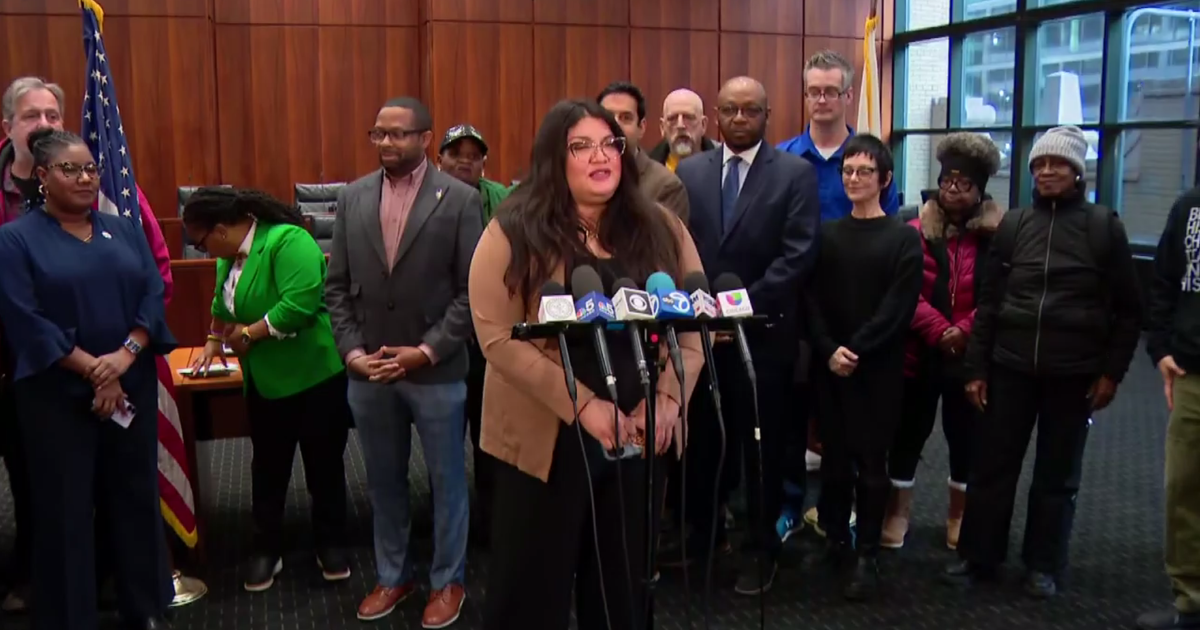Illinois Lawmakers Head Into Final Stretch With Many Issues Unresolved
SPRINGFIELD, Ill. (AP) --Illinois lawmakers moved forward Monday on a historic expansion of Medicaid and adding more protections for pet owners, but heavy lifting on the state's most pressing issues -- pensions, a budget, expanded gambling, gay marriage and gun control -- remained with the clock ticking toward a Friday deadline.
After nearly three hours of debate, the House approved a key part of President Barack Obama's health care law. The proposed Medicaid expansion would cover low-income adults who don't have children at home and up to 500,000 uninsured Illinoisans would be newly eligible for coverage. Under the multifaceted measure, 342,000 people are expected to enroll by 2017.
"This is the cornerstone of our president's agenda. Many of us have been waiting for this moment," said Rep. Sara Feigenholtz, a Chicago Democrat and bill sponsor. She tamped down questions from Republicans over timing by saying those who need care can't wait another day.
"They will become insured for the first time in history," she said.
House lawmakers approved the measure 63-55. It heads back to the Senate after House changes. Gov. Pat Quinn, who is in favor, said it would "improve the health of hundreds of thousands of the most vulnerable people across Illinois." U.S. Sen. Dick Durbin, the No. 2 Senate Democrat, made an appearance during the floor debate, but didn't speak.
Numerous Republicans questioned the cost given Illinois' disastrous finances and whether the expansion is sustainable. Several called for a delay. A U.S. Supreme Court decision last year made the expansion optional and more than a dozen Republican-led states have declined.
The expansion would cover those making up to 138 percent of the federal poverty level, or just under $16,000 annually, and the federal government would pay for it the first three years. After that, states would gradually pick up a greater percentage of the costs.
"This isn't a case of not caring about people who need health care. This is the case of us being responsible legislators," said Rep. David Harris, an Arlington Heights Republican. "We have a duty to craft a budget that puts this state on a sound financial footing. This bill weakens our financial footing."
Talk of Illinois' financial problems set the tone for the week ahead.
Lawmakers are working on a budget agreement they say will avoid cuts to education and will immediately pay off bills the state owes human services providers. Democrats in the House and Senate worked together on the spending plan, and key initial votes in the House are expected Tuesday morning.
Quinn had proposed cutting K-12 education by about $300 million -- reductions he said were necessary because the state has yet to resolve its nearly $97 billion pension crisis. But Democratic budget negotiators said they were able to avert those cuts because of higher-than-anticipated revenues this year and projected for the fiscal year that begins July 1.
The two chambers remain without a deal on the nearly $100 billion pension problem -- the worst of any state in the nation.
Also Monday, the House approved a plan adding more protections for Illinois consumers who buy a dog or cat at a pet store and find out the pet is gravely ill. House members voted 67-49 for the so-called "puppy lemon law." The Senate approved it earlier this month, but House changes will require Senate concurrence. A spokeswoman said Monday that Quinn supports it.
The legislation allows buyers to be reimbursed for veterinary fees, get a replacement or a full refund if the animal dies within 21 days of purchase. It also allows them to return the animal within a year if it has a congenital or hereditary condition. Both require a veterinarian's written statement.
Opponents said the bill was too far reaching and questioned why it didn't include shelters.
The sponsor of a bill to expand gambling in the state, including five new casinos, said talks on his plan were moving along and would be ready for consideration by the end of the week.
Lawmakers also face a June 9 deadline to legalize concealed carry after a federal appeals court ruled Illinois' last-in-the-nation ban unconstitutional. A bill backed by House Speaker Michael Madigan cleared the House last week. But Quinn, Senate President John Cullerton and Chicago Mayor Rahm Emanuel oppose it because it strips the city's right to its own gun restrictions.
(© Copyright 2013 The Associated Press. All Rights Reserved. This material may not be published, broadcast, rewritten or redistributed.)







